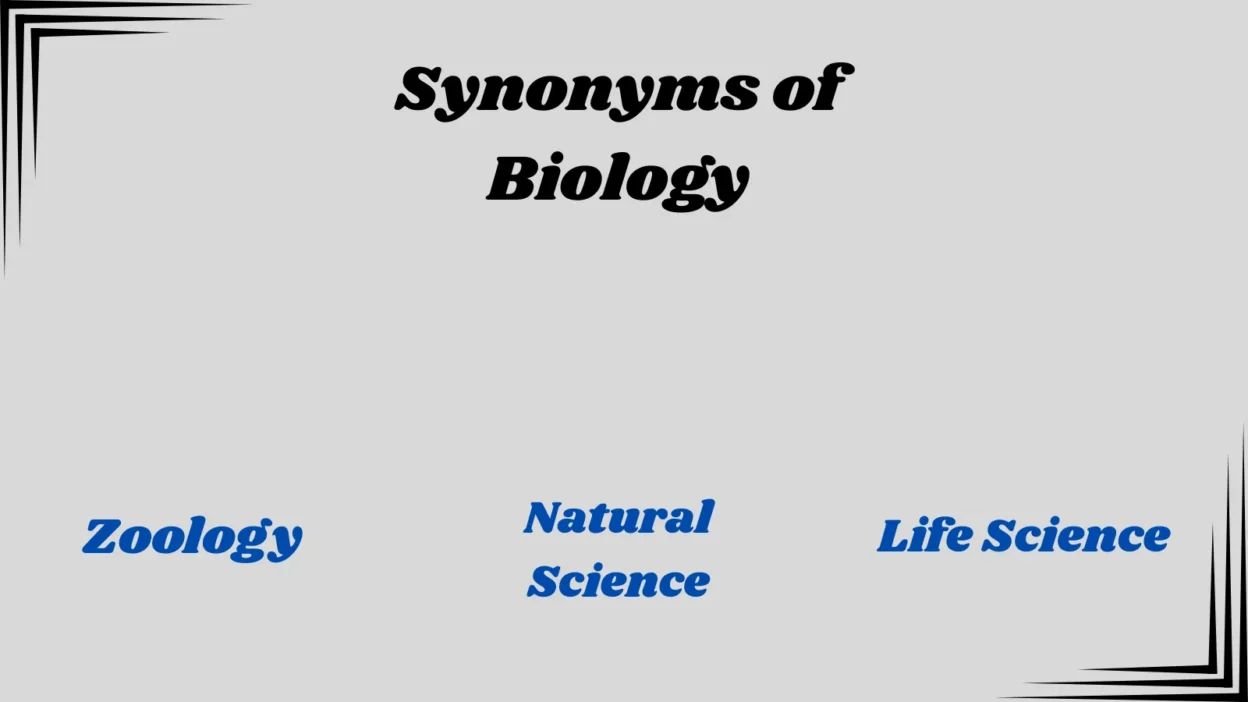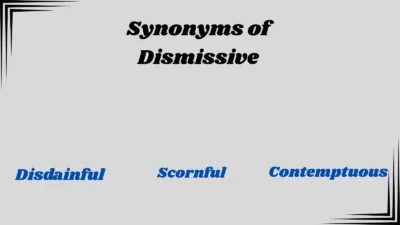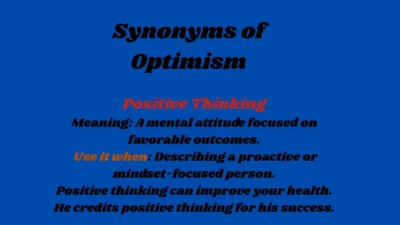Synonyms of biology such as life science, biological science, natural science, and bioscience all refer to the study of living organisms and their interactions with the environment. For example, “life science” is commonly used in education and industry to describe fields like genetics, ecology, and physiology. These alternatives highlight different aspects of biology, from its academic roots to its applied branches.
Whether you’re writing for students, researchers, or casual readers, the right synonym helps you communicate more clearly and effectively. In this guide, we’ll explore the most relevant synonyms of biology and when to use them to match your tone and purpose.
Understanding these terms also gives insight into how biology overlaps with other sciences and impacts everyday life. From classrooms to cutting-edge labs, the language of biology continues to evolve and inspire.
What Does Biology Mean?
Biology is the scientific discipline that studies living organisms, including their structure, function, growth, evolution, and interactions. It includes everything from microscopic cells to vast ecosystems. The tone of biology is typically academic, neutral, and science-based.
30 Synonyms and Related Terms for Biology
1. Life Science
Meaning: The broad field that studies living organisms.
Use it when: You’re talking about biology as part of a group of sciences or in an educational context.
- She’s majoring in life sciences at university.
- Advances in life science are improving healthcare every year.
2. Natural Science
Meaning: A science concerned with the physical world, including biology, chemistry, and physics.
Use it when: You want to refer to biology in a broader scientific context.
- Biology is one of the core natural sciences.
- He has a deep interest in the natural sciences.
3. Zoology
Meaning: The study of animals and animal life.
Use it when: You’re specifically focusing on animals.
- She specializes in zoology, particularly marine mammals.
- Zoology covers everything from insects to elephants.
4. Botany
Meaning: The study of plants.
Use it when: You’re discussing plant life within biology.
- His passion for botany began in childhood.
- Botany helps us understand how plants impact ecosystems.
5. Ecology
Meaning: The study of how organisms interact with each other and their environment.
Use it when: You’re focusing on relationships in nature.
- The professor lectures on ecology and climate change.
- Urban development has disrupted local ecology.
6. Genetics
Meaning: The study of heredity and genes.
Use it when: You’re focusing on DNA, traits, or inheritance.
- Modern genetics is unlocking cures for rare diseases.
- Her research in genetics focuses on fruit flies.
7. Microbiology
Meaning: The study of microscopic organisms.
Use it when: You’re discussing bacteria, viruses, and fungi.
- Microbiology plays a key role in vaccine development.
- He took a course in microbiology last semester.
8. Physiology
Meaning: The study of how living systems function.
Use it when: Talking about biological processes.
- She teaches human physiology to nursing students.
- Physiology explains how the heart and lungs work together.
9. Anatomy
Meaning: The study of the structure of organisms.
Use it when: Focusing on bodily structure.
- We dissected frogs to study anatomy.
- He excels in both anatomy and physiology.
10. Biochemistry
Meaning: The chemistry of life processes.
Use it when: Emphasizing molecular-level biology.
- Her thesis covers biochemistry in plant cells.
- Biochemistry connects biology with chemistry.
11. Cell Biology
Meaning: The study of cells and their functions.
Use it when: You’re focusing on microscopic life and processes.
- Cell biology is fundamental to cancer research.
- The lab focuses on cell biology and protein behavior.
12. Molecular Biology
Meaning: The study of biology at the molecular level.
Use it when: Discussing DNA, RNA, and protein synthesis.
- Molecular biology explains how genes are expressed.
- She’s studying molecular biology to work in pharmaceuticals.
13. Evolutionary Biology
Meaning: The study of how organisms evolve.
Use it when: Discussing adaptation, natural selection, and change.
- Darwin’s work laid the foundation for evolutionary biology.
- Evolutionary biology helps explain biodiversity.
14. Marine Biology
Meaning: The study of ocean life.
Use it when: Focusing on aquatic ecosystems.
- He dreams of becoming a marine biologist.
- Marine biology covers everything from plankton to whales.
15. Environmental Biology
Meaning: The study of how organisms interact with their environment.
Use it when: Emphasizing ecosystems, pollution, and sustainability.
- Environmental biology examines how species adapt to change.
- She’s pursuing a degree in environmental biology.
16. Biomedical Science
Meaning: The application of biology to health and medicine.
Use it when: You’re linking biology with clinical fields.
- Biomedical science is essential in diagnosing diseases.
- He’s studying biomedical science to work in healthcare.
17. Bioinformatics
Meaning: The use of tech and data in biology.
Use it when: Referring to computational biology.
- Bioinformatics analyzes large genetic data sets.
- The future of personalized medicine relies on bioinformatics.
18. Taxonomy
Meaning: The science of the classification of living organisms.
Use it when: Discussing naming and grouping species.
- Taxonomy helps scientists organize life forms.
- The discovery led to changes in insect taxonomy.
19. Paleobiology
Meaning: The study of ancient life.
Use it when: Referring to biology through fossils and evolution.
- Paleobiology combines paleontology and biology.
- Fossils provide clues in paleobiology research.
20. Astrobiology
Meaning: The study of life in the universe.
Use it when: Talking about potential life beyond Earth.
- NASA invests heavily in astrobiology.
- Astrobiology explores whether Mars once had life.
21. Ethology
Meaning: The study of animal behavior.
Use it when: You’re focusing on how animals act.
- Jane Goodall revolutionized ethology.
- Ethology sheds light on instinct and learning.
22. Mycology
Meaning: The study of fungi.
Use it when: Specializing in mushrooms, molds, and similar organisms.
- Mycology is key to understanding decomposers.
- He studies mycology to develop antifungal drugs.
23. Virology
Meaning: The study of viruses.
Use it when: Discussing infectious disease research.
- Virology became crucial during the pandemic.
- She works in a virology lab.
24. Ornithology
Meaning: The study of birds.
Use it when: Focusing on avian species.
- He developed an interest in ornithology through birdwatching.
- Ornithology combines biology and environmental science.
25. Entomology
Meaning: The study of insects.
Use it when: Referring to the insect world specifically.
- Entomology helps control agricultural pests.
- She wrote a thesis on ant behavior in entomology.
26. Biotech / Biotechnology
Meaning: Using biology to develop products or technologies.
Use it when: You’re talking about applied science.
- Biotechnology is transforming agriculture.
- He works in the biotech sector.
27. Pathology
Meaning: The study of disease and its effects.
Use it when: Focusing on disease processes.
- Pathology helps doctors understand causes of illness.
- She’s studying pathology in medical school.
28. Neurobiology
Meaning: The biology of the nervous system.
Use it when: Focusing on the brain or nerves.
- Neurobiology helps explain behavior and perception.
- He researches memory in neurobiology.
29. Human Biology
Meaning: The biology specific to the human body.
Use it when: Discussing anatomy, health, or development.
- The course introduces concepts in human biology.
- Human biology is central to medical training.
30. The Life Sciences
Meaning: A collective term for all biology-related sciences.
Use it when: You want a general, inclusive term.
- Careers in the life sciences are in demand.
- She’s passionate about innovation in the life sciences.
How to Choose the Right Term
Use formal or technical terms like: Molecular biology, biochemistry, or neurobiology
When you’re writing for scientific or academic audiences.
Use general terms like: Life science, natural science, or human biology
When you’re educating a wider audience or writing casually.
Use specialized terms like: Ecology, virology, or botany
When you’re being specific or narrowing your topic focus.
Use poetic or metaphorical substitutes like: The study of life
When writing creatively or philosophically.
Conclusion:
After exploring various synonyms of biology, it’s clear that terms like life science, bioscience, and natural science each highlight a unique angle of studying life. These alternatives not only diversify your language but also allow you to tailor your message depending on the context, whether academic, professional, or casual.
Understanding these terms helps reinforce how deeply biology influences everything from medicine to ecology. As you communicate scientific ideas, choosing the most fitting synonyms for biology can bring clarity and relevance.
Let your word choice reflect both the precision and wonder that biology represents.





